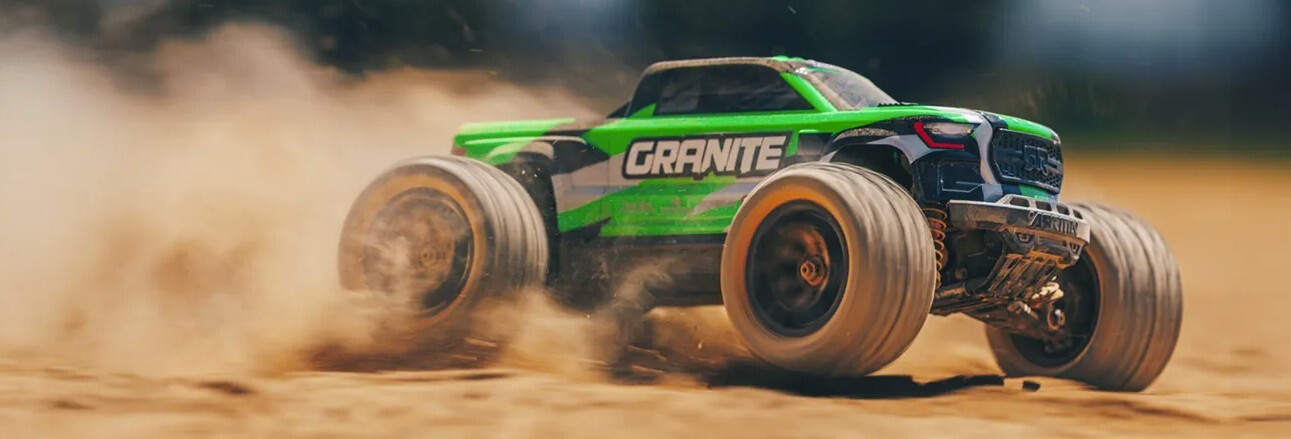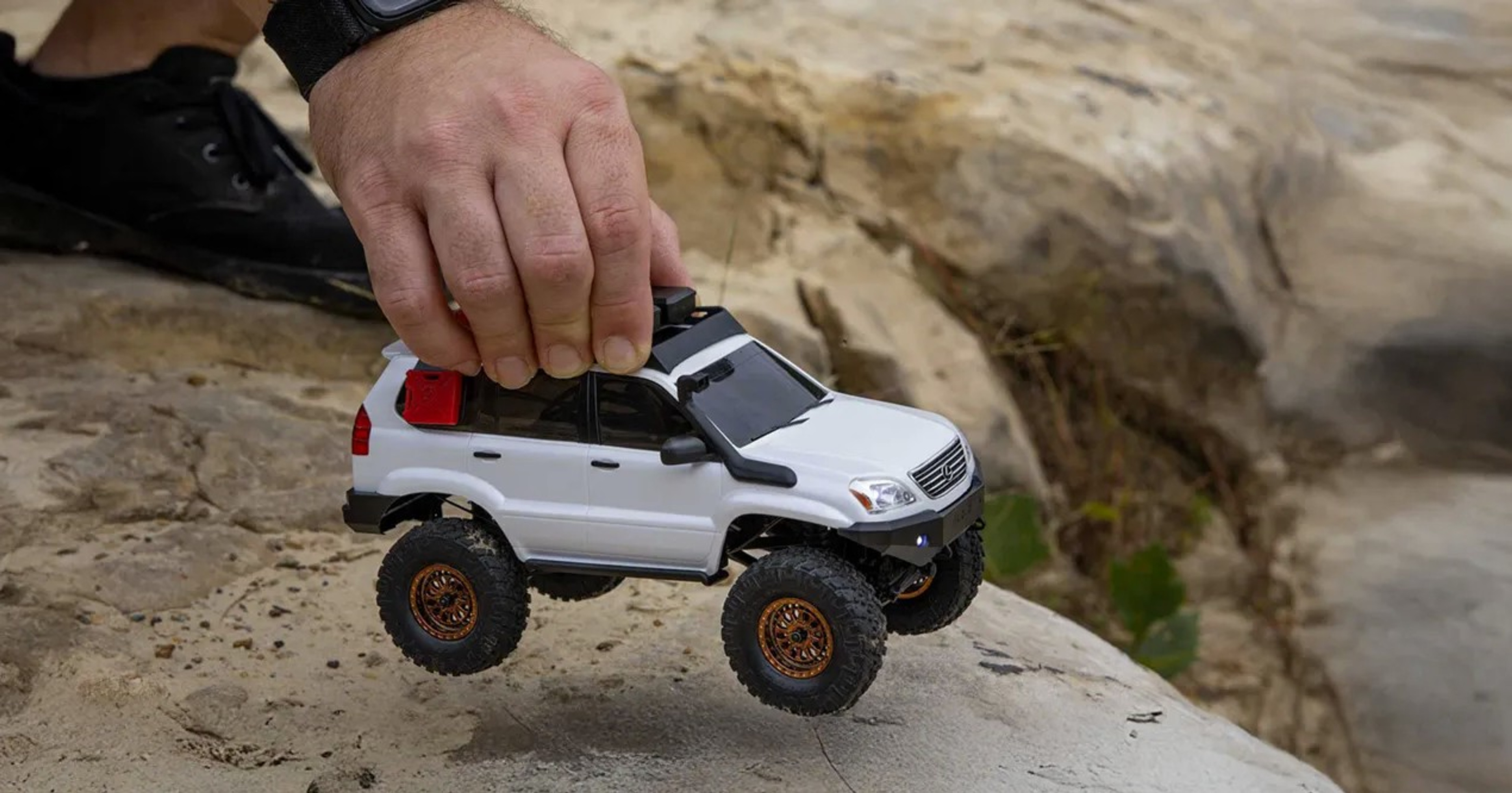Whilst on the hunt for the best beginner RC car, you’ll quickly discover a wide variety of radio-controlled cars and trucks designed to help newcomers succeed in the hobby. Choosing a single “best” option for all beginners is challenging, as preferences vary just like they do when selecting a full-size car at a dealership. In this blog post, we'll take you through what you need to think about before purchasing your first RC car.
What do I need to consider when buying my first RC car?

It’s important to note that the RC cars and trucks found in toy and department stores are primarily designed with cost-effectiveness in mind. They often feature flashy, unrealistic designs aimed at appealing to children. These RC toys are typically made from brittle plastics and can break easily under normal use, with no replacement parts available for repairs.
In contrast, the RC models available at hobby stores and online hobby retailers are in a different league, often referred to as “hobby-quality” or “hobby-grade.” These models boast superior construction, engineering and performance, as well as the convenience of a full range of spare and upgrade parts, to keep you on track and driving your way to improvement. Hobby-grade beginner RC cars offer a balance of affordability, durability, ease of operation, realistic aesthetics and endless fun.
For those with no prior experience with RC cars, it’s essential to look for certain key features in your first model. Here are some important considerations to keep in mind while deciding on the best beginner RC car for you.
1. Value for money
For those new to the RC car hobby, getting started quickly is often a priority. Opting for a ready-to-run (RTR) model instead of a build-it-yourself kit can help you hit the ground running. While RTR models may have a higher upfront cost compared to kits, their overall value is often greater. Top RC vehicle manufacturers like ARRMA, Losi, and Axial produce many more RTR cars than they do kits.

The best RTR beginner RC cars come with most, if not all, of the necessary electronics, including the motor and radio equipment, so you don’t need to purchase these items separately. These vehicles come factory-assembled and painted out the box, saving you time and ensuring proper assembly. Some RTR models may require you to buy batteries and charger separately. Despite this, RTR beginner RC cars are worth the investment, allowing you to focus on learning to drive.
2. Durability
One of the main distinctions between hobby-grade beginner RC cars and RC toys is their durability. Hobby-grade radio control vehicles are constructed with aluminium and composite parts designed to endure significant impacts. This sturdiness ensures they can withstand the occasional crash as you get the hang of an RC controller.
RC cars and trucks are often categorised as either “bashers” or “racers.” For beginners, the best options are typically found among the bashers. Racing vehicles are sleek, lightweight, and built for speed. In contrast, bashers are designed to handle rough treatment and usually have higher ground clearance, making them ideal for uneven terrains. With a basher beginner RC car, you can confidently tackle jumps and race across dirt, gravel, sand, mud, and more.

3. Ease of operation
Choosing a beginner RC car can feel overwhelming, given the many options available. Should you go for an electric-powered car or explore nitro power? If you opt for electric, should you choose a brushed or brushless motor? And what about the transmission - 2WD or 4WD?
For beginners, these questions are straightforward to answer. Generally, a 4WD RC vehicle is easier to control than a 2WD, similar to full-scale cars.
Nitro engines offer a realistic experience but come with the downsides of being oily, high-maintenance, and noisy enough to disturb neighbours. On the other hand, electric-powered cars are cleaner, quieter, easier to operate and can match, if not exceed the speed of a nitro car. When beginning your journey into RC cars, it’s best to start with an electric-powered vehicle. Once you’ve got a better understanding of what's involved in maintaining your vehicle, a nitro car becomes a more viable option.
If budget is a concern, a brushed motor is likely your best bet for an electric beginner RC car. However, if speed is your goal, brushless motors, though more expensive, offer higher performance. Additionally, if your radio transmitter has a throttle limiting feature, you can restrict the motor power to 50% or 75% until you’re ready to handle full speed.

Embarking on the journey of selecting the best beginner RC car involves navigating a diverse array of options, each tailored to different preferences and needs. While toy store RC cars may be appealing due to their cost-effectiveness and flashy designs, they often fall short in terms of durability and performance. On the other hand, hobby-grade RC cars, available at specialised hobby stores and online retailers, offer superior construction, realistic aesthetics, and the convenience of replaceable parts, making them a worthwhile investment for newcomers.
When choosing your first RC car, prioritise value for money by considering ready-to-run (RTR) models, which come pre-assembled and equipped with essential electronics, allowing you to start driving right away. Durability is another crucial factor, with hobby-grade cars designed to withstand the rigours of learning and rough terrain. Opt for a basher model if you plan to tackle various surfaces and enjoy a more robust driving experience.
Ease of operation is also key, with electric-powered cars generally being more beginner-friendly than nitro-powered ones. A 4WD vehicle offers better control and stability, making it an ideal choice for those new to the hobby. By focusing on these essential features—value for money, durability, and ease of operation — you can confidently select a beginner RC car that will provide endless enjoyment and a solid foundation for your RC adventures.
If you have any further questions or concerns about choosing your first RC car, please contact us via email or on (08) 8186 4250 and our customer service team will be happy to assist.
